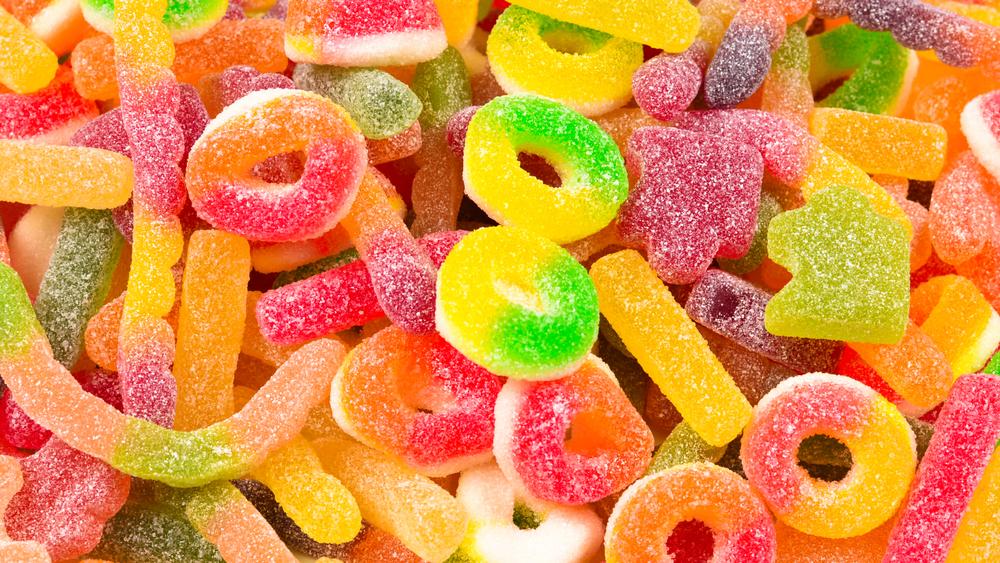

Prevent Tooth Decay and Gum Problems
More than just a sweet villain causing tooth decay and gum problems, sugar has been leading an all-out assault on oral health globally. Consuming sugar feeds the bacteria in our mouths, causing them to produce acidic byproducts that wear away at tooth enamel and lead to tooth decay. Over time, this decay can lead to cavities, gum disease, and tooth loss.
In this post, our Staten Island dentists will unravel the bitter truth behind sugar’s sweet appeal and share prevention strategies to protect your precious teeth from its destructive grip.
The Role of Sugar in Oral Health
Sugar, often considered a delightful indulgence, can have serious implications for our oral health. Tooth decay, or dental caries, occurs when acid from bacteria in plaque dissolves the enamel and dentine of teeth, leading to cavities. But how does sugar contribute to this process?
When we consume sugary foods and beverages, the sugar interacts with plaque bacteria in our mouths. This interaction leads to the production of acid, which in turn causes tooth decay by dissolving tooth enamel. Plaque bacteria rely on sugar as an energy source, and when provided with ample amounts of sugar, they thrive and produce more acid. Reducing the consumption of sugary snacks and beverages is crucial in preventing dental caries.
Think of it like this: consuming sugar is like providing fuel for plaque bacteria to produce acid, which damages our tooth enamel. While everyone is at risk of tooth decay, children and adolescents are particularly vulnerable.
The Impact of Sugar on Tooth Enamel Erosion
The enamel is the protective outer layer of our teeth, shielding them from damage and decay. However, sugar can play a detrimental role in eroding this vital defense system. When we consume sugary foods and beverages, the acid produced by plaque bacteria attacks our tooth enamel, leading to its erosion over time.
Tooth enamel erosion can manifest as visible changes in the teeth’s appearance, such as discoloration or yellowing. As the enamel weakens, it becomes more prone to cavities and other dental problems. Eventually, if left unaddressed, teeth may become more sensitive to hot or cold temperatures and develop cracks or fractures.
Not all sugars have equal effects on tooth enamel. Sticky complex carbohydrates like bread can be worse for our teeth than simple sugars due to their tendency to linger in the mouth and be broken down into sugars over an extended period. That’s why it’s crucial to practice good oral hygiene habits and limit the consumption of both obvious and hidden sources of sugar.
For instance, regularly indulging in sugary snacks like candy or sipping sugary drinks throughout the day might gradually erode your tooth enamel over time. However, if you choose to enjoy a piece of fruit that contains natural sugars during a meal, it’s less likely to harm your teeth as the natural sugars are accompanied by fiber, which aids in saliva production and helps neutralize acid.
 Sugar, Plaque, and Gum Problems
Sugar, Plaque, and Gum Problems
When it comes to oral health, the relationship between sugar, plaque, and gum problems is deeply intertwined. Plaque is a sticky film of bacteria that forms on our teeth throughout the day. These bacteria thrive on sugar, particularly refined sugars and carbohydrates, as they use them as a source of energy to produce acids that attack tooth enamel.
Over time, if proper oral hygiene isn’t maintained, this acid can lead to the formation of cavities. Additionally, plaque can irritate and inflame gums, leading to gum disease or gingivitis. The longer plaque remains on teeth and gums, the greater the risk of gum problems.
While sugar itself is not directly responsible for gum disease, its contribution shouldn’t be overlooked. High sugar intake contributes to the formation of plaque, increasing the likelihood of gum problems.
Consequences of Excessive Sugar Intake on Oral Health
Tooth Decay
Sugar plays a significant role in tooth decay by providing energy for plaque bacteria to produce acid that dissolves tooth enamel. This results in decayed areas or cavities in the teeth. It’s estimated that one in three adults and one in four children suffer from tooth decay worldwide.
Increased Risk of Gum Disease
When plaque builds up along the gumline, it can cause inflammation and infection in the gums. If left untreated, this can progress to more severe gum disease, known as periodontitis. A diet high in sugar exacerbates the development and progression of gum disease, as sugar provides the fuel for plaque bacteria to flourish. Gingivitis, an early stage of gum disease characterized by swollen and bleeding gums, is also more common in individuals with a high-sugar diet.
Bad Breath
The bacteria that feed on sugar produce acids and release foul-smelling gases as byproducts. This can contribute to persistent bad breath or halitosis. Regularly consuming excessive amounts of sugar can perpetuate bad breath issues.
Tooth Sensitivity
Acid erosion caused by sugar consumption can lead to tooth sensitivity. The erosion gradually wears away the protective layer of enamel, exposing the dentin underneath. This can result in pain or discomfort when consuming hot or cold foods and beverages.
Health Complications
Regularly indulging in sugary foods and beverages not only affects teeth and gums but also has implications for overall health. Excessive sugar intake has been linked to an increased risk of developing conditions such as diabetes, obesity, and cardiovascular diseases. Maintaining good oral health through minimizing sugar consumption is an important aspect of preserving overall well-being.
Beneficial Alternatives
While it can be challenging to eliminate sugar from our diets, several beneficial alternatives promote oral health without compromising on taste.
- One popular option is non-nutritive sweeteners, commonly found in sugar-free gum or mints. These sweeteners provide us with a satisfying burst of sweetness without contributing to tooth decay. Chewing sugar-free gum stimulates saliva production, which helps neutralize acids and wash away food particles, thus aiding in the remineralization process.
- Dentists also recommend xylitol, a natural sugar substitute found in various products like chewing gum, toothpaste, and candies. Xylitol has been shown to reduce cavity-causing bacteria in the mouth and promote healthy teeth. By incorporating xylitol into your oral care routine, you can enjoy the sweetness without subjecting your teeth to harmful effects.
- Incorporating fresh fruits like apples or strawberries into our diets can be beneficial for oral health. Although fruits contain natural sugars, their fiber content helps stimulate saliva production and scrub away plaque. Additionally, fruits provide essential vitamins and minerals that support overall dental well-being.
By making conscious choices and opting for these alternatives, we can protect our teeth from the damaging effects of sugar while indulging in flavorful options that promote good oral health.
Practical Strategies to Shield Teeth from Sugar Damage
By implementing these strategies, we can minimize the risk of tooth decay and gum problems, promoting a healthier smile for years to come.
- An essential practice is brushing your teeth twice a day with fluoride-containing toothpaste. This helps remove plaque buildup and prevents acid erosion caused by sugar. Use proper brushing techniques, covering all surfaces of your teeth and gums for at least two minutes each time.
- Another effective strategy is to floss daily. While brushing tackles the surfaces of your teeth, flossing gets between them, removing food particles and plaque that may have accumulated throughout the day. This process is crucial in reaching areas that cannot be reached by a toothbrush alone.
- Reduce the consumption of sugary snacks and beverages. Opt for healthier alternatives like fresh fruits or nuts as snacks and choose water or unsweetened drinks over sugary sodas or juices. By making these conscious choices, you’re limiting the exposure of your teeth to excessive amounts of sugar.
- Limiting snacking between meals. Frequent snacking prolongs the duration during which your teeth are exposed to acids produced by sugar-eating bacteria. Aim for balanced meals that keep you satiated for longer periods, reducing the need for continuous snacking throughout the day.
- Consider consuming sugary foods only at mealtimes. The increased flow of saliva during meals helps neutralize acids and rinse away harmful sugars more efficiently. By incorporating sugary treats into your main meals, you minimize the impact on your teeth compared to constant snacking between meals.
By adopting these practical strategies, you can establish strong defenses against sugar damage and prioritize your oral health. Remember, prevention is key in combating tooth decay and gum problems caused by sugar. Take charge of your dental hygiene today and reap the rewards of a lasting, radiant smile.
Protect Your Smile from Tooth Decay!
By limiting your intake of sugar and visiting the dentist twice a year, you can keep your teeth healthy and beautiful. To learn more about how sugar affects your oral health, or to make an appointment, contact our Staten Island dentists today.


 Sugar, Plaque, and Gum Problems
Sugar, Plaque, and Gum Problems